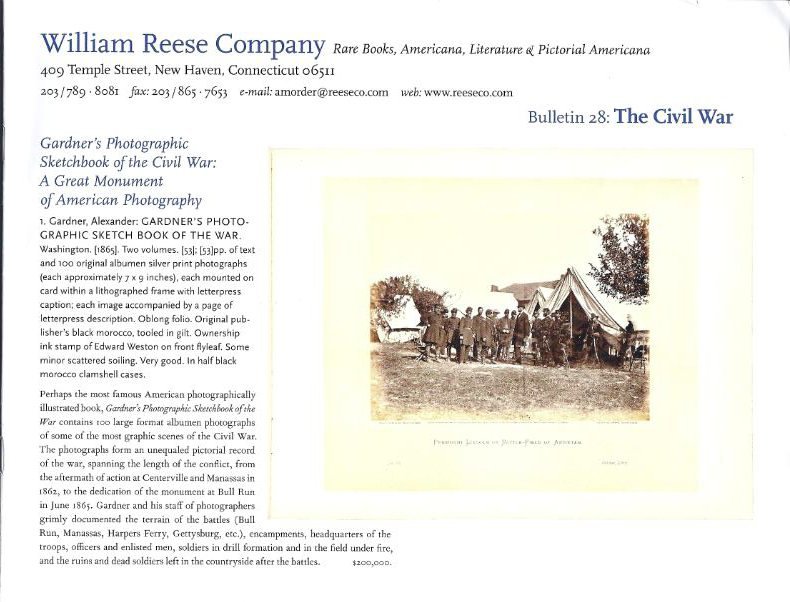Civil War Material from the William Reese Company
- by Michael Stillman

Civil War Material from the William Reese Company
The William Reese Company has published their Bulletin 28: The Civil War. This is a selection of 32 items pertaining to that awful intramural skirmish, a terrible price paid to save the Union and rid it of the greatest stain on its character – slavery. Surely, there must have been a better way to accomplish this necessary goal, but unfortunately, cooler heads did not prevail. This collection includes books, maps, illustrations, manuscript letters and drawings, certificates, archives, and broadsides. Here are a few of these.
Item 32 is a rare copy of the final draft of the Confederate Constitution. We don't often think of such issues during the middle of war, but the constitutional laws and protections of the United States went out the window as far as the Confederate government was concerned. They had to quickly draft their own version, which was mostly based on that of the United States. There were some differences. This Constitution does more to protect the sovereignty of the individual states vis-a-vis the confederate government. It prohibits the use of federal funds for making internal improvements to facilitate commerce, other than certain small exceptions pertaining to rivers and harbors. It also prohibits taxes on foreign goods to promote any branch of industry, a tip of the hat to southern resentment of tariffs supported by the North to protect northern industry. The Confederate Constitution provided for a single, six-year term for the President. However, the major differences, as one would expect, pertain to slavery. Its immutable character is clearly spelled out. It states that no “law denying or impairing the right of property in negro slaves shall be passed,” that the property right in slaves shall not be impaired by traveling to a different state, and all new states that join the Confederacy must permit slavery. It specifies “negro slavery,” “negro slaves,” and “negroes of the African race,” racial specificity not made in the U.S. Constitution, just to be clear. One hundred copies of this final draft were authorized to be printed, but only five copies are known today. Priced at $175,000.
Item 4 is an archive of manuscript material of a prominent early Texan, George Washington Smyth. Smyth went to Texas and worked as a land surveyor for Mexican authorities. However, he later joined up with those seeking independence for Texas. Smyth was a signer of the Texas Declaration of Independence, was involved in writing the state constitution, and supported union with the United States. During the 1850s he served one term as a Congressman but declined to seek reelection. Smyth, like Sam Houston, was a strong opponent of secession, and among the items here is a manuscript copy of a speech he gave on July 4, 1860, expressing his opposition. He believed secession to be illegal. However, after Texas seceded the following year, he did support the Confederacy. $15,000.